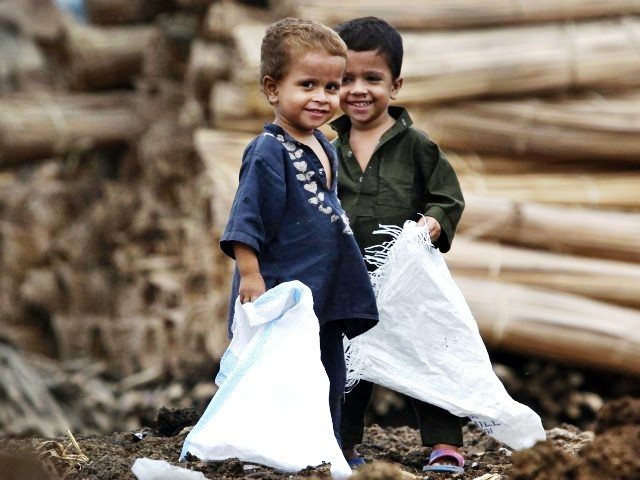‘Pandemic has forced more kids out of schools’
Experts deem political dialogue necessary to mitigate ‘educational crisis’

Pakistan needs an estimated investment of Rs12 trillion over the next decade to ensure every out-of-school child in Pakistan is finally in schools. This was the crux of different speakers’ views on the state of education in the country.
A virtual dialogue was organised by Education Champions Network (ECN), a platform of 12 civil society organisations advocating 12 years of free, equitable, quality education for every girl in Pakistan.
The participants included political representatives from across the country participated including Senator Mushahid Hussain Syed, MPAs Madiha Nisar and Zeenat Bibi from Khyber Pakhtunkhwa, Shamim Aftab from Punjab and Rabia Azfar from Sindh. Public financial management expert Asim Bashir Khan also took part in the dialogue. Senior journalist Zarrar Khuhro moderated the national dialogue which was meant to generate a discourse on Pakistan's education priorities.
Zarrar Khuhro while moderating the dialogue said Pakistan was in dire need of a national political dialogue to mitigate the key issues plaguing the country's education system.
Public financial management expert Asim Bashir Khan in his address said there was an urgent need for an increase in the country’s education budgets. “An estimated investment of Rs 12 trillion is needed over the next 10 years because at the current rate of investment, it will take Pakistan 45 years to merely overcome the backlog of 22.8 million children who were out of school prior to the pandemic,” he added. He said we need to ensure every out-of-school child in Pakistan is finally in schools.
Senator Mushahid Hussain Syed said it was a lack of political will rather than non-availability of resources that was primarily responsible for the persistently low priority accorded to education. “The feudal mindset continues to dominate the political landscape in Pakistan and needs immediate redressal if we are serious about honouring the constitutional promise of providing free and quality education to every Pakistani child,” he added.
The veteran senator pledged to raise the issue of the country's lukewarm funding for the education sector in the Senate.
MPAs Madiha Nisar and Zeenat Bibi from Khyber Pakhtunkhwa said that despite the pandemic and the fairly recent merger of the areas comprising FATA into Khyber Pakhtunkhwa, the province was able to increase its education development budget by 43 per cent during the fiscal year 2020-21.
They said in comparison, during this time Punjab and Balochistan introduced cuts of 19 per cent and 27 per cent respectively. In the same vein, Khyber-Pakhtunkhwa has been allocating 70 per cent of its education development expenditure to improve girls’ access to education for the last two consecutive years. Other provinces need to follow suit, they added.
Highlighting the KP’s exceptional performance, Chairperson of the Provincial Standing Committee for Higher Education, Madiha Nisar said: “We have been closely following reports by international donors according to which close to one million children have already dropped out of schools during the pandemic and an estimated 700,000 are further feared to drop-out. We, in Khyber-Pakhtunkhwa, are very mindful of this alarming situation and are hopeful to introduce a healthy increase in the province's education development budget to mitigate this crisis.”
Sindh MPA Rabia Azfar said in her address that in the past decade Sindh has been successful in allocating a significant chunk of its annual budget for education and its education portfolio stands second only to Punjab. However, despite this huge investment, Sindh's performance vis-à-vis enrollment and retention rates, teacher training, construction and upgradation of schools and addressing the issue of missing facilities have remained among the bottom three regions of the country.
Commenting on this dichotomy, she said, “to begin with a very small portion of Sindh's overall education budget is earmarked for development initiatives; over 80% of it is consumed in salaries and other administrative expenses. No meaningful change in the province's education indicators can be introduced without increasing its education development budget.”
Published in The Express Tribune, May 28th, 2021.



















COMMENTS
Comments are moderated and generally will be posted if they are on-topic and not abusive.
For more information, please see our Comments FAQ